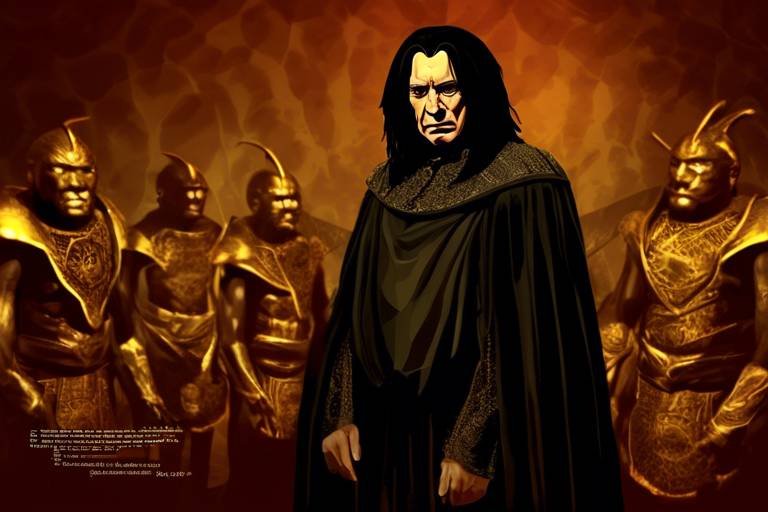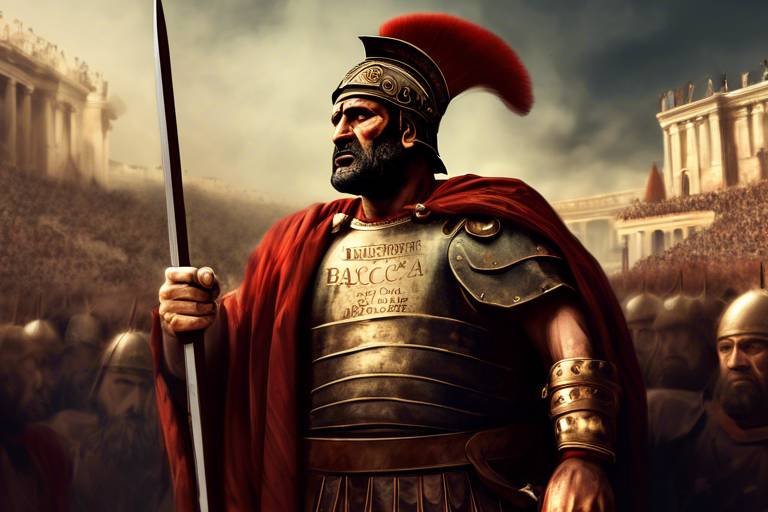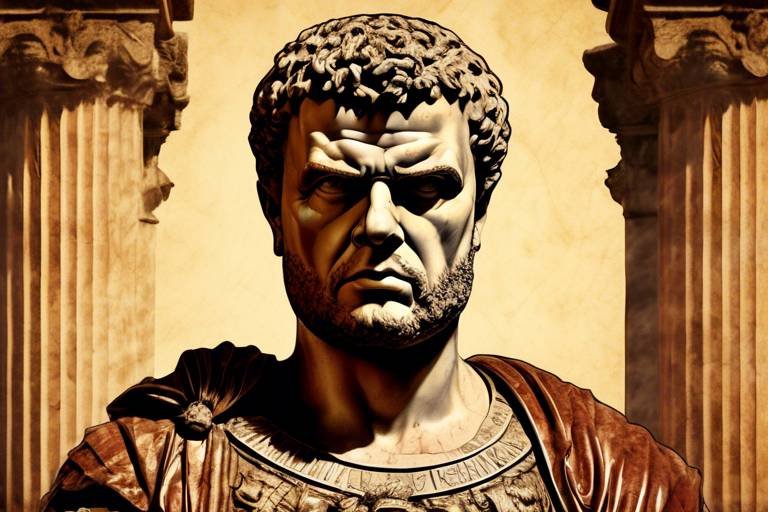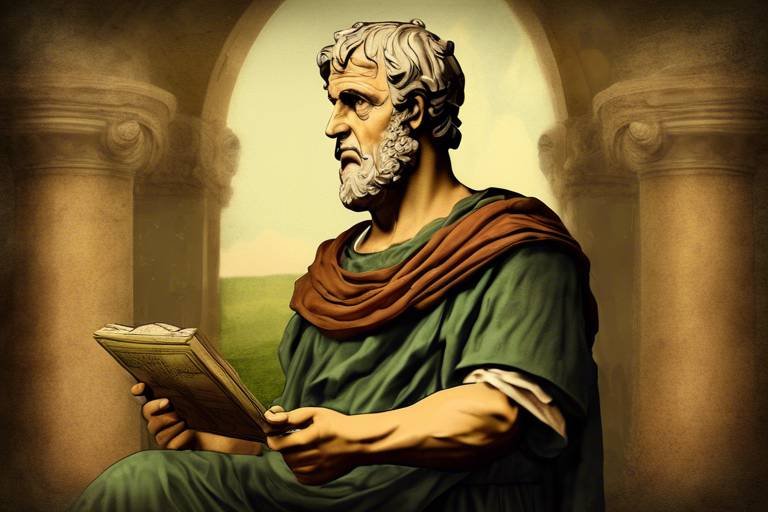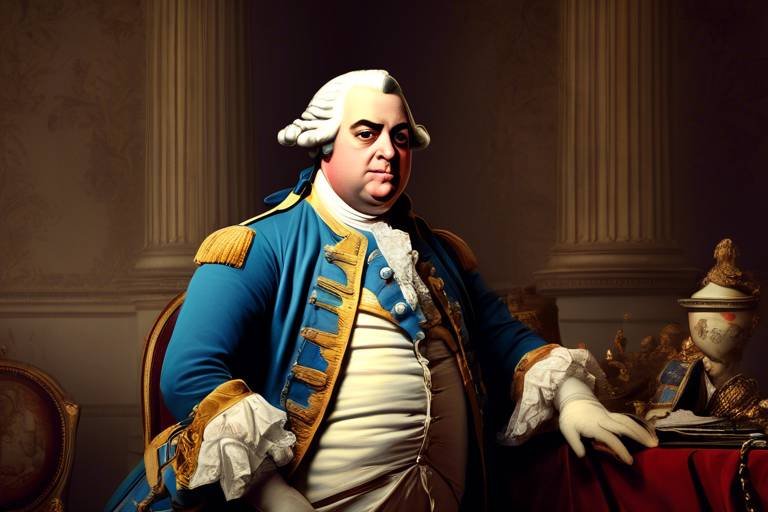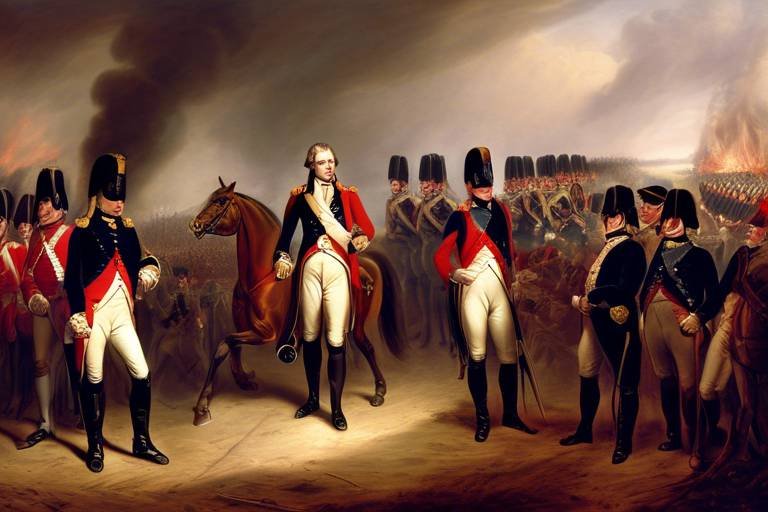Severus: The African Emperor
Septimius Severus, the first Roman emperor of African descent, left an indelible mark on the history of the Roman Empire during his reign from 193 to 211 AD. Born in Leptis Magna, a city in Roman North Africa, Severus rose to power through his exceptional military prowess and strategic acumen, navigating the turbulent waters of Roman politics to claim the imperial throne.
His victory in the tumultuous Year of the Five Emperors solidified his position as a formidable leader, setting the stage for a transformative era in Roman history. Severus' military campaigns were legendary, as he led successful expeditions into Parthia and Britain, expanding and securing the empire's borders while quelling threats from rival claimants to the throne.
However, Severus was not only a skilled military commander but also a visionary reformer. His administrative policies, such as the significant increase in military pay and legal reforms, aimed to strengthen the empire's institutions and centralize power, ensuring greater stability and efficiency in governance.
Family played a crucial role in Severus' life, with his wife Julia Domna and sons Caracalla and Geta influencing both his personal decisions and the imperial succession. The complex dynamics within the Severan family would have far-reaching consequences for the future of the empire.
Severus' legacy extends beyond his military and political achievements to encompass his impact on Roman art and architecture. The iconic Arch of Septimius Severus in Rome stands as a testament to his patronage of the arts and his efforts to beautify the imperial capital.
Throughout history, Severus has been depicted in various ways, shaping our understanding of his reign and character. From ancient historical accounts to modern popular culture, the portrayal of Severus reflects the evolving narratives surrounding his legacy and contributions to the Roman Empire.
Ultimately, Septimius Severus occupies a unique place in Roman history as a bridge between the old and new, ushering in a new era of governance and cultural integration. His enduring significance as the African Emperor underscores the diverse and dynamic nature of the Roman Empire under his rule.

Early Life and Rise to Power
Septimius Severus, the first Roman emperor of African descent, reigned from 193 to 211 AD, leaving a significant mark on the Roman Empire. Let's delve into his life, military conquests, reforms, and enduring legacy.
Septimius Severus was born in Leptis Magna, a prominent city in Roman Africa, in 145 AD. His humble beginnings did not hinder his ambition, as he pursued a career in the military, showcasing his strategic prowess and leadership skills. Severus rose to power during the tumultuous Year of the Five Emperors, emerging victorious amidst the chaos to claim the imperial throne.
His military background and decisive actions earned him the loyalty of the legions, solidifying his position as the undisputed ruler of Rome. Severus' rise to power symbolized a shift in the Roman Empire, as an African emperor took the reins and ushered in a new era of governance.
Through his astute political maneuvering and military acumen, Severus navigated the treacherous waters of Roman politics, establishing himself as a formidable leader capable of uniting a fractured empire under his rule. His early life experiences and determination propelled him to the pinnacle of power, setting the stage for his transformative reign.
As Severus ascended to the imperial throne, his vision for the Roman Empire began to take shape, laying the foundation for a period of stability and prosperity that would define his legacy for centuries to come.

Severus' Military Campaigns
Septimius Severus, the first Roman emperor of African descent, left an indelible mark on the Roman Empire during his reign from 193 to 211 AD. Let's delve into his life, military campaigns, reforms, and enduring legacy.
Severus was a formidable military leader, known for his successful campaigns that solidified the borders and stability of the Roman Empire. His strategic prowess was evident in his conquests in Parthia, Britain, and his decisive victories against rival claimants to the throne.
One of Severus' most notable military achievements was his campaign in Parthia, where he secured key territories and established Roman dominance in the region. His meticulous planning and tactical acumen ensured victory, showcasing his military brilliance.
In Britain, Severus faced fierce resistance from local tribes but ultimately prevailed, bringing the region further under Roman control. His military campaigns in Britain were marked by both strategic cunning and adaptability, as he navigated challenging terrain and weather conditions.
Moreover, Severus skillfully dealt with rival claimants to the throne, quelling internal dissent and consolidating his power. His ability to command loyalty from his troops and allies was instrumental in maintaining stability within the empire.
Throughout his military campaigns, Severus demonstrated a keen understanding of warfare, utilizing a combination of diplomacy and force to achieve his objectives. His legacy as a military leader is defined by his unwavering determination and strategic foresight, setting him apart as one of the most accomplished emperors in Roman history.

Reforms and Policies
Septimius Severus implemented a series of significant reforms and policies during his reign as Roman emperor, aiming to strengthen the empire's administration and military capabilities. One of his most notable reforms was the military pay increase, which aimed to boost the morale and loyalty of the soldiers. By improving the financial well-being of the military personnel, Severus ensured a more stable and dedicated army, crucial for maintaining control and defending the empire.
Additionally, Severus introduced legal reforms that aimed to streamline the judicial system and ensure fair treatment for all citizens. These reforms sought to enhance the efficiency of the legal processes, reduce corruption, and uphold the rule of law throughout the empire. By implementing these changes, Severus aimed to create a more just and orderly society, fostering a sense of security and stability among the populace.
Furthermore, Severus focused on centralizing power within the empire to strengthen his authority and ensure effective governance. By consolidating power in the hands of the emperor, Severus aimed to streamline decision-making processes, expedite administrative procedures, and maintain control over the vast territories of the Roman Empire. This centralization of power allowed Severus to enact swift and decisive measures, ensuring stability and order throughout the realm.
In essence, Severus' reforms and policies were aimed at bolstering the military, enhancing the legal system, and centralizing authority to maintain stability and security within the Roman Empire. These initiatives reflected his pragmatic approach to governance and his commitment to strengthening the foundations of the empire for future generations.

Family and Succession
Septimius Severus' family played a crucial role in his reign as the Roman Emperor. His wife, Julia Domna, was known for her intelligence and political acumen, actively participating in the governance of the empire. Together, they had two sons, Caracalla and Geta, who were designated as co-emperors to ensure a smooth succession. However, the relationship between the brothers was tumultuous, leading to a power struggle after Severus' death.
Julia Domna's influence extended beyond the family circle, as she was involved in diplomatic affairs and patronized intellectuals and artists, contributing to the cultural flourishing of the Severan dynasty. Despite the challenges of succession, Severus attempted to secure the dynasty's future by promoting his sons within the political and military spheres.
Caracalla eventually succeeded his father as the sole emperor but faced immediate opposition from Geta, resulting in a violent confrontation that led to Geta's assassination. This event stained Caracalla's reputation and highlighted the complexities of familial relationships in the context of imperial power.
The dynamics within Severus' family exemplify the intricate balance between personal ambitions, political alliances, and the demands of ruling an empire. The issue of succession remained a perennial challenge for Roman emperors, often resulting in power struggles, betrayals, and bloodshed.

Legacy and Impact
Septimius Severus, the first Roman emperor of African descent, reigned from 193 to 211 AD, leaving a significant mark on the Roman Empire. Let's delve into his life, military campaigns, reforms, and enduring impact.
Septimius Severus's legacy reverberates through the annals of Roman history, marking a pivotal era of transition and consolidation. His reign not only reshaped the political landscape but also influenced military strategy, governance, and cultural integration within the empire.
One of Severus's most enduring impacts was his emphasis on military prowess and discipline. By bolstering the army's strength and introducing reforms such as increased pay and benefits for soldiers, he solidified the empire's borders and ensured internal stability.
Moreover, Severus's administrative reforms aimed at centralizing power and streamlining governance mechanisms set a precedent for future rulers. His efforts to codify laws and enhance the efficiency of the imperial bureaucracy laid the foundation for a more cohesive and organized empire.
Severus's family dynamics also played a crucial role in shaping his legacy. His relationships with his wife Julia Domna and sons Caracalla and Geta not only impacted the imperial succession but also influenced the political landscape of the time. The tensions and rivalries within the Severan family added a layer of complexity to his reign and subsequent legacy.
Architecturally, Severus's reign witnessed significant developments, including the construction of the iconic Arch of Septimius Severus in Rome. This architectural marvel stands as a testament to his grandeur and the cultural vibrancy of the era.
Historically, Severus's representation in various accounts and literary works has varied, reflecting the complexities of his rule. While some depict him as a strong and capable leader, others highlight the challenges and controversies that marked his reign. These diverse portrayals contribute to a nuanced understanding of Severus's character and impact on the Roman Empire.
In conclusion, Septimius Severus's legacy as the African Emperor endures as a symbol of resilience, ambition, and adaptability in the face of turbulent times. His reign stands as a bridge between the ancient dynasties, leaving an indelible mark on the course of Roman history.

Art and Architecture
Septimius Severus, the first Roman emperor of African descent, reigned from 193 to 211 AD, leaving a lasting impact on the Roman Empire through his military prowess, administrative reforms, and cultural contributions.
During Severus' reign, significant advancements were made in art and architecture, showcasing the empire's grandeur and sophistication. One of the most notable architectural achievements was the construction of the Arch of Septimius Severus in Rome. This triumphal arch, located in the Roman Forum, commemorated Severus' military victories and served as a symbol of his power and authority. The arch's intricate carvings and detailed reliefs depicted scenes from Severus' campaigns, immortalizing his successes for future generations to admire.
Furthermore, Severus' patronage of the arts led to a flourishing of creativity and innovation in Roman society. Artists and architects were encouraged to push the boundaries of traditional styles, resulting in the development of new techniques and forms of expression. Sculptures, paintings, and mosaics from this period reflected a fusion of Roman, Greek, and Eastern influences, creating a rich tapestry of artistic diversity.
Architecturally, Severus oversaw the construction of grand public buildings, temples, and baths, transforming the urban landscape of Rome and other major cities in the empire. These structures not only served practical purposes but also served as symbols of Roman power and civilization, showcasing the empire's wealth and cultural sophistication to the world.
In addition to monumental architecture, Severus also supported smaller-scale artistic endeavors, such as the production of luxury goods, jewelry, and decorative arts. These exquisite creations adorned the homes of the wealthy elite, reflecting their status and refined tastes. The artistic legacy of Severus' reign continued to influence later periods, inspiring future generations of artists and architects to strive for excellence and innovation.
- Q: What was Severus' impact on Roman military strategy?
- A: Severus implemented reforms that emphasized discipline, training, and strategic planning, laying the foundation for later military successes.
- Q: How did Severus contribute to the integration of diverse cultures in the Roman Empire?
- A: Severus promoted cultural exchange and tolerance, encouraging the blending of Roman, Greek, and Eastern traditions in art, architecture, and daily life.
- Q: What was the significance of the Arch of Septimius Severus?
- A: The arch symbolized Severus' military victories and authority, serving as a lasting monument to his reign and accomplishments.

Historiography and Representation
When delving into the historiography of Septimius Severus, it becomes evident that his portrayal in historical accounts and literature has been multifaceted and often influenced by the perspectives of the writers. Some sources depict Severus as a strong and capable ruler, highlighting his military prowess and administrative reforms that brought stability to the Roman Empire. On the other hand, certain narratives emphasize his ruthless tactics in dealing with political rivals and the challenges he faced in maintaining control over a vast and diverse empire.
Throughout popular culture, Severus has been represented in various ways, sometimes as a heroic figure who expanded the empire's borders and strengthened its defenses, and other times as a tyrant who prioritized power and conquest above all else. These differing representations have contributed to shaping public perceptions of Severus and his reign, showcasing the complexities of his character and the nuances of his rule.
Furthermore, the interpretation of Severus in historical texts has evolved over time, with modern historians reevaluating his legacy in light of new discoveries and perspectives. By critically analyzing the primary sources and archaeological evidence available, scholars continue to uncover fresh insights into Severus' reign and the lasting impact he had on the Roman Empire.

Historical Significance
Septimius Severus holds immense historical significance as a pivotal figure in the Roman Empire, bridging the gap between the Julio-Claudian and Severan dynasties. His reign marked a significant shift in Roman leadership, as he became the first emperor of African descent, challenging the traditional notions of Roman identity and power.
Severus' rule brought about important changes in military strategy and governance, setting the stage for future emperors to follow. His military campaigns in Parthia and Britain not only expanded the empire's borders but also solidified its defenses, ensuring stability and security for years to come.
Moreover, Severus' administrative reforms, such as the increase in military pay and efforts to centralize power, aimed to strengthen the empire's institutions and maintain order. These policies had a lasting impact on the Roman Empire, shaping its trajectory for generations.
One of Severus' most enduring legacies is his promotion of diverse cultures within the empire, fostering a sense of inclusivity and unity among its inhabitants. His reign saw the integration of various traditions and artistic influences, leading to a flourishing of art and architecture, exemplified by the construction of the iconic Arch of Septimius Severus in Rome.
Historians and scholars continue to analyze Severus' reign and its significance in shaping the course of Roman history. His portrayal in historical accounts, literature, and popular culture reflects the complexities of his character and the impact of his rule on subsequent generations.
In conclusion, Septimius Severus stands as a remarkable figure whose reign marked a transformative period in Roman history. His legacy as the African Emperor resonates through the centuries, highlighting the dynamic nature of Roman leadership and the enduring impact of his policies and achievements.
Frequently Asked Questions
- Who was Septimius Severus?
Septimius Severus was the first Roman emperor of African descent who ruled from 193 to 211 AD. He was born in Leptis Magna and rose to power through his military career.
- What were Severus' major military campaigns?
Severus led successful military campaigns in Parthia, Britain, and against rival claimants to the throne. These campaigns helped secure the empire's borders and maintain stability.
- What reforms did Severus implement?
Severus introduced administrative reforms such as increasing military pay, implementing legal reforms, and centralizing power within the empire to strengthen governance.
- How did Severus' family impact his reign?
Severus had a significant family life, including his wife Julia Domna and sons Caracalla and Geta. The challenges of succession among his sons also influenced his rule.
- What was Severus' legacy and impact on the Roman Empire?
Severus left a lasting impact on the Roman Empire through his military strategies, governance reforms, and promotion of cultural integration. His reign bridged the gap between dynasties.

